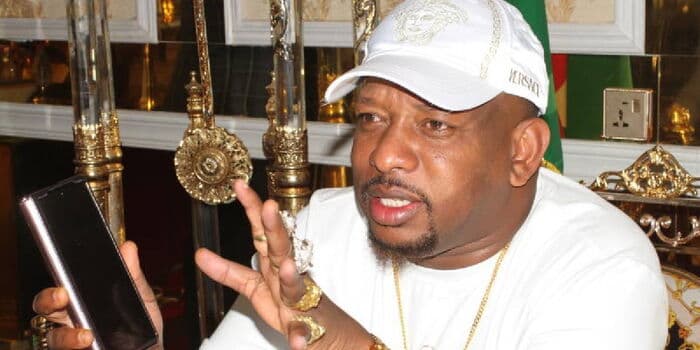We're loading the full news article for you. This includes the article content, images, author information, and related articles.
The High Court has directed the Assets and Recovery Agency (ARA) to release over Ksh16 million to former Nairobi Governor Mike Mbuvi Sonko, ruling that the agency failed to provide adequate evidence of money laundering.

The Nairobi High Court on Wednesday, October 1, 2025, ordered the Assets and Recovery Agency (ARA) to unfreeze bank accounts belonging to former Nairobi Governor Mike Mbuvi Sonko, paving the way for the release of over Ksh16 million. Justice Nixon Sifuna ruled that the ARA failed to present sufficient evidence to link the funds to alleged money laundering activities.
Justice Sifuna stated in his ruling, “The evidence so far on record is insufficient to support the assertion that the funds flagged by the applicant (ARA), which are the subject of these proceedings, and which are in various respondents’ (Sonko) bank accounts, are proceeds of crime.” He further added that there was no legal basis to order the forfeiture of the funds to the Kenyan government.
The ARA had frozen Sonko's bank accounts, alleging that the funds were proceeds of crime, specifically money laundering. This ruling effectively discharges preservation orders that had been in place since February 6, 2020, allowing Sonko immediate access to his funds.
Sonko's lawyer, Harrison Kinyanjui, highlighted that the court found the ARA's case to be based on suspicion rather than concrete facts. Kinyanjui noted that Sonko provided evidence demonstrating legitimate business ventures prior to becoming governor, including real estate sales, which accounted for regular deposits into his accounts. The court also faulted the ARA for not presenting financial records from before Sonko's governorship, which could have provided a more complete financial picture.
The Assets and Recovery Agency (ARA) is established under Section 53 of the Proceeds of Crime and Anti-Money Laundering Act (POCAMLA) No. 9 of 2009. Its mandate includes identifying, tracing, freezing, seizing, and confiscating proceeds of crime to combat money laundering, terrorist financing, and proliferation financing. The Act empowers the Director of ARA to apply for preservation orders if there are reasonable grounds to believe property is linked to criminal activity.
However, the High Court's decision underscores the legal principle that suspicion alone is insufficient to justify depriving a citizen of their property, as enshrined in Article 40, sub-article 3 of the Kenyan Constitution, which protects the right to own property.
This ruling is seen as a significant reprieve for Sonko, who has faced numerous corruption allegations and legal challenges since his impeachment as Nairobi Governor in December 2020. While this case focused on money laundering allegations, Sonko has also been involved in other corruption cases. For instance, in December 2024, the High Court overturned his acquittal in a Ksh20 million graft case, ordering a retrial. Separately, in January 2025, an Anti-Corruption Court acquitted him of two counts in a Ksh20 million corruption case, though he was placed on his defense for charges of money laundering and conflict of interest in the same case.
Analysts suggest this development could influence public debate on the efficacy of asset recovery efforts and judicial oversight. Stakeholders are urging for greater clarity on the timelines, costs, and safeguards involved in such high-profile cases.
The ruling highlights the challenges faced by asset recovery agencies in securing convictions and forfeitures without robust evidence. It reinforces the judiciary's role in safeguarding property rights against state overreach. For the ARA, this outcome may necessitate a review of its investigative and evidence-gathering processes to ensure cases meet the required legal threshold.
The exact impact of this ruling on other ongoing cases involving Mike Sonko remains to be seen. It is also unclear whether the ARA will appeal this specific decision.
Observers will be keenly watching for any potential appeal by the ARA and the progression of Sonko's other corruption-related cases. The ruling may also spark discussions on legislative reforms to strengthen asset recovery frameworks while upholding constitutional rights.
Ethics and Anti-Corruption Commission (EACC), Directorate of Public Prosecutions (DPP), Anti-Corruption and Economic Crimes Act (ACECA).
Keep the conversation in one place—threads here stay linked to the story and in the forums.
Sign in to start a discussion
Start a conversation about this story and keep it linked here.
Other hot threads
E-sports and Gaming Community in Kenya
Active 9 months ago
The Role of Technology in Modern Agriculture (AgriTech)
Active 9 months ago
Popular Recreational Activities Across Counties
Active 9 months ago
Investing in Youth Sports Development Programs
Active 9 months ago
Key figures and persons of interest featured in this article